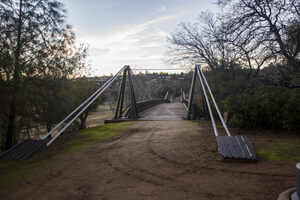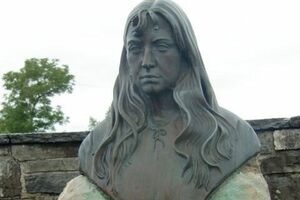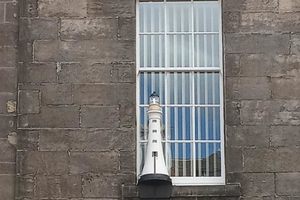Bidwell Bar Bridge in Oroville, California

On July 4, 1848, John Bidwell discovered gold in a canyon of the Feather River. The town of Bidwell’s Bar was soon in business. As one of the first mining camps in California, life was difficult. Settlers relied on a ferry to transport people and supplies across the river. A bridge was erected but was destroyed during a flood. In 1854, approval was given to build a stronger, permanent solution to cross the canyon.
Constructed in Troy, New York, this iron structure was shipped down the Hudson River to the Atlantic. It then ventured around the Cape Horn of South America, arriving in the San Francisco Bay. From there, the bridge was moved up the Sacramento and Feather Rivers. The journey covered around 18,000 nautical miles, with a team of oxen hauling it the final 30 miles. When completed in 1855, it was California’s first suspension bridge.
In 1961, construction of the Oroville Dam began. Bidwell’s Bar was soon submerged by the waters of Lake Oroville. The bridge and tollhouse were preserved and moved in 1964.
Now located in a state park, visitors can cross the old bridge to a vista point to see the new Bidwell Bar Bridge on the opposite side of the lake.





